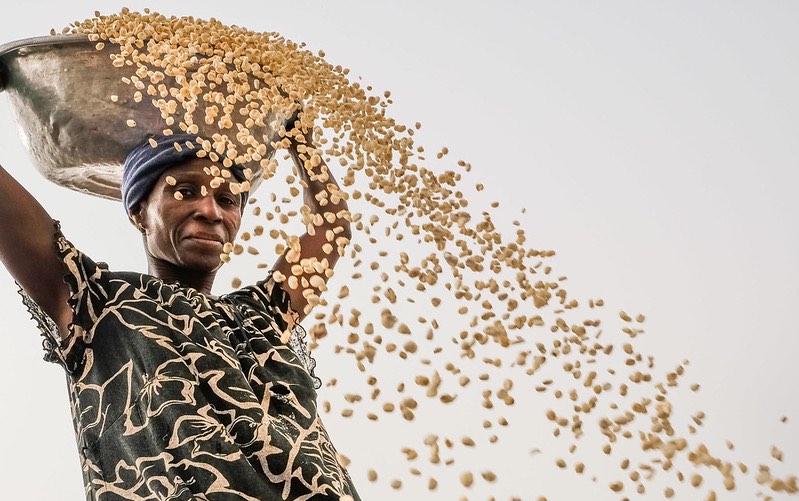Ghana has been viewed as one of Africa’s political and economic success stories, from maintaining a multi-party democracy, peace and social cohesion to reducing poverty and growing its middle class. Yet, despite 30 years of continuous growth in per capita income and rapid urbanization, the country has not been able to industrialize and most of the workforce is either trapped in traditional agriculture or low-productivity jobs in the services sector.
Agriculture holds the potential to help bring about more sustainable and equitable patterns of growth, but public and private actors will need to adjust course in order to achieve it.
In our new book, Ghana’s Economic and Agricultural Transformation: Past Performance and Future Prospects, we integrate economic and political analysis to explore the challenges to and opportunities for Ghana’s economic transformation. Using a wide range of primary and secondary data at multiple scales, we examine Ghana’s overall economic performance since the major Structural Adjustment Program in the mid-1980s and provide an analysis of the performance of the agricultural sector and broader economy over the past four decades.
We find that urbanization has led to more nonfarm jobs in rural areas, a substantial decline in the share of households that depend primarily on agriculture, and the uptake of labor-saving technologies in farming, like mechanization. But contrary to expectations, urbanization has not induced any significant agricultural intensification in terms of higher land productivity. Instead, agricultural growth has depended predominantly on expanding the cropped area—through clearing virgin forests and reducing the length of traditional fallow periods—rather than raising crop yields.
This pattern of growth has reduced Ghana’s competitiveness in developing agricultural exports other than cocoa, and in competing with imports like rice, poultry, and processed foods. It is also a pattern of growth that is becoming unsustainable and environmentally damaging. There is relatively little virgin forest left, and the reduction of fallow periods is leading to serious soil fertility problems which have been masked so far by the increased use of inorganic fertilizers to replace lost nutrients rather than to raise yields.
In the future Ghana will need to adopt more intensive agricultural practices that raise land as well as labor productivity. This will require significant new investments in agriculture beyond cocoa, including food staples, which have been badly neglected in the past. The lack of improved seeds, credit, irrigation, quality control, farmer organizations and public-private partnerships could all be stemmed through more proactive government intervention.
An analysis of Ghana’s Cocoa Board (Cocobod) indicates areas where these interventions could be most beneficial in additional value chains. In order for the Ghanaian government to harness the transformative potential of agriculture, more effort will also be needed to strengthen relationships with businesses and target scarce resources to selected value chains with the greatest growth and employment potential. Ultimately, long-term commitments to transforming the agriculture sector require good governance, including improved government capacity for implementation, monitoring, and evaluation.
With the right kinds of policies and investments, Ghana could enhance its agricultural exports, reduce its food imports, and in the process create many more productive jobs along agricultural value chains, boost national per capita income, absorb a growing labor force and enable more workers to shift out of traditional or low-productivity agriculture.
Ghana’s predicament is emblematic of the broader African struggle for sustainable structural change. Agriculture offers several options for improving economic transformation but the viability of those options must be weighed carefully given past investment decisions, political and economic constraints, and the global economic system in which Ghana, and much of Africa operates.
Danielle Resnick is a Senior Research Fellow and Xinshen Diao is Deputy Director in IFPRI’s Development Strategy and Governance Division; Peter Hazell and Shashidhara Kolavalli are independent researchers based in the United States. This post first appeared on AllAfrica.com.







